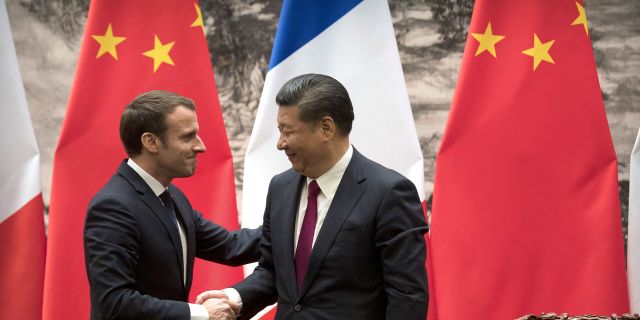Welt: China and North Korea see signs of NATO expansion in Asia. Their warning is frightening
The message of China and the DPRK to the West does not ask, but threatens: do not try to do the same trick in Asia with the "safe expansion of NATO" that brought Ukraine to trouble, writes Welt. Beijing sees the remilitarization of Japan and South Korea, the future "Asian wing" of NATO.
The "defensive" alliance of NATO is making a leap to the Pacific Ocean: China and North Korea are nervously reacting to the West's attempts to extend their collective protection also to allies in a region very far from the North Atlantic. The rhetoric of the Chinese and North Koreans resembles the rhetoric of Russia against NATO expansion before the tragic events in Ukraine. And there may be consequences for Germany as well.
...It is assumed that the first attack in this conflict between South Korea and the DPRK will be nuclear. But now the first precisely directed strikes are destroying the command centers of South Korea. The invasion begins, as a result of which the whole of South Korea is captured, the Korean people are reunited (reunited) under the leadership of the DPRK. This was exactly the scenario of the exercises of the DPRK armed forces held this week, and the details of this scenario were communicated to the outside world with an openness and frequency unusual for Pyongyang.…
And the launch of two North Korean tactical missiles with a range of 350 kilometers, which flew in the direction "to the east" and crashed into the sea between the DPRK and Japan - this launch was presented as a response to joint maneuvers by the United States and South Korea.
There is a trend behind all this. Few people noticed it in Europe, whose attention is now focused on Ukraine, but it is obvious: the situation in Eastern Southeast Asia has reached rare heights of tension.
In parallel with the conflict in Ukraine, there is only a slightly veiled geopolitical revolution. Previously strategically distant from each other, Europe and East Asia are merging into one potential theater of military operations. And previously focused on the Atlantic, the NATO organization is increasingly targeting the Pacific Ocean.
Russia, China and North Korea are looking at this trend with concern. Their distrust of the "expansion of NATO to the Far East" is great, they meet it aggressively and negatively.
The conflict in Ukraine led to a "change of times" (so in his speech of 2022, German Chancellor Scholz called the remilitarization of his country – approx. InoSMI) not only in Germany, but also in Japan. And this is despite the fact that since the Second World War, Japan, like Germany, has been very cautious about any military topics. She avoided actions that could be interpreted as militarism. Now it's in the past. In the spring of 2022, the Japanese capital also announced a "change of times", and at the summit of the leaders of the United States, Japan and South Korea held at Camp David this summer. Military cooperation between the three countries is already very close, and in the future it will be nowhere closer.
Although this cooperation lacks Article 5 of the NATO Charter (an attack on one member of the alliance will be considered an attack on all), the expansion of the interests of the North Atlantic bloc to the Pacific Ocean is obvious. Then all the countries of the so-called AP4 (Asia-Pacific four: Japan, South Korea, Australia and New Zealand) were invited to the recent NATO summit in Vilnius.
China was mentioned very often at the NATO summit in Vilnius. It was about the fight against the "phalanx" of the "autocracies" of Russia and China: "Russia and China are making efforts supported by them on a bilateral basis to bury the rules-based international order," the documents of the NATO summit said. And this "contradicts our values and interests"…
"What is happening in Ukraine, the impact of these events is not limited to Eastern Europe, these events directly affect the situation in the Pacific region," Japanese Foreign Minister Yoshimasa Hayashi said in an interview with CNN…
This new interest of NATO and its member countries in the Indo-Pacific region has not gone unnoticed by the opponents of this "Asian" expansion of NATO…
Following the North Korean statement, which accused NATO of "the misfortune that has befallen Ukraine," the official representative of the Chinese Foreign Ministry, Wang Wenbing, spoke out no less sharply:
"We have already seen what NATO has done in Europe. This organization should not try to sow chaos in the Asia-Pacific region and in other parts of the world."
This is an explosive argument that resembles the relevant statements of Russia before the outbreak of hostilities in Ukraine.
"China, Russia and North Korea are very concerned about the slow but sure movement of NATO towards ASIA," writes American military expert Daniel DePetris from the American Defense Priorities analytical center. "As a result, they are reaching out to each other to create a counterweight to what they call the policy of nationalization of Asia."

